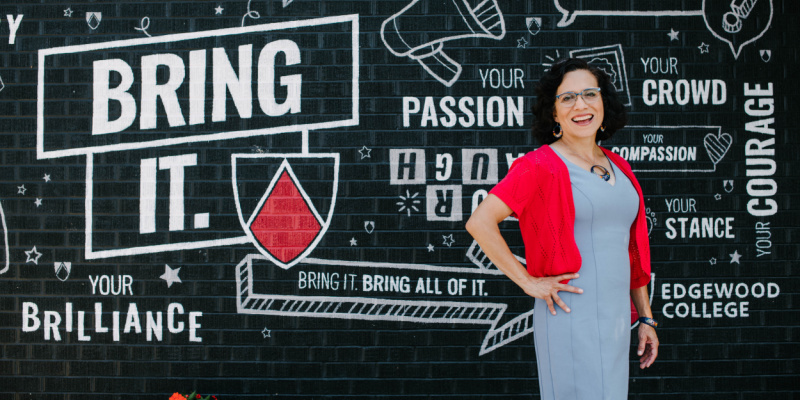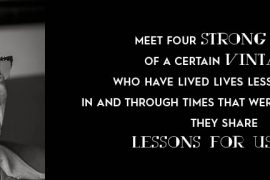By Jessica Steinhoff | Photography by Hillary Schave
Moms are the heart and soul of many traditional Latinx households. The list of “typical” mom responsibilities is never-ending: Changing diaper after diaper, cooking meal after meal, cleaning mountains of dishes and laundry, attending to children’s tears and runny noses, shuttling loved ones to school and medical appointments, and celebrating the milestones of kids, spouses and members of the extended family are just a few examples. With this role comes exhaustion and expectations, but also reverence and love.
It can be hard to take a step back, even in the most thankless moments, for fear of disappointing others — especially relatives who’ve worked hard to maintain traditions. This is particularly true for Latina moms who work outside the home. According to Beatriz Aguilar, an Edgewood College music professor who also teaches intracultural communication and social justice courses at the college, it’s one reason many Latinas often struggle to achieve leadership positions throughout their careers.
“I looked at leadership statistics for Fortune 500 companies and found that the percentage of Latinas in executive or administrator positions is very low. Discrimination is one factor, but there are other barriers to consider as well,” she explains. “We need to ask what’s driving young Latinas away from these positions within themselves and within the companies that aren’t recognizing what valuable leaders they could be.”
Of course, no amount of talent, ambition or hard work can change the fact that there are only 24 hours in a day. Even when leadership opportunities present themselves, the juggling act required to excel at these jobs can seem like an impossible feat. Sharing how grown-up Latina leaders juggle is crucial because it shows girls how they can do it too, Aguilar says.
This is one reason Aguilar launched the Institute for the Empowerment of Latina Women, a transformative five-week workshop series for Madison-area Latina teens. Aguilar expected about 10 girls to participate in the Institute’s first series, which took place on the Edgewood campus in the fall of 2021, in partnership with Madison College and UW-Madison. Instead, 40 girls showed up, and interest has grown from there.
Aguilar devotes the second half of each workshop to sharing local Latina professionals’ success stories, including those of Brenda González, UW-Madison’s director of community relations, and Ida Balderrama-Trudell, formerly the chief of staff to UW-Madison’s Dean of Students and now Overture Center’s director of equity and innovation.
González, the institute’s inaugural presenter, recalls how she pounced on this chance to connect with young women of color. “Since the first time I talked to Beatriz about the idea of this program, my heart and mind felt at ease,” she says. “I knew she was bringing tools, knowledge, experiences, trust and love to the spaces she was creating for middle and high school students who identify as women, and I knew she could help these women know that they belong.”
SOFT SKILLS FOR HARD JOBS
In addition to showing how Latina leaders navigate a complicated landscape of cultural and professional expectations, including expectations related to family and gender roles, the institute helps young women challenge faulty narratives that have permeated American society and limited their opportunities.
Aguilar is particularly interested in how Latinas are perceived by both employers and American society at large. This interest stems, in part, from her own experience of launching a career in the United States after growing up in Mexico City. In the 25 years she has lived in the States — seven as a graduate student at the University of North Texas and 18 as an Edgewood professor in Madison — she has noticed that Latina girls receive discouraging, bias-driven messages about their ability to achieve academically and professionally. This fuels her desire to help Latinas fight the assumptions they’re up against when applying for college, job promotions and other crucial opportunities.
“Soft skills are one set of tools that can be used to fight these assumptions, so several of the institute’s workshops have focused on body language and verbal communication,” she says. “These skills can help Latinas adapt to the [professional] environments they encounter and generate change, no matter what field they choose.”
Aguilar recognized just how valuable soft skills can be when a leadership coach helped her prepare for a job interview.
“The coach helped me focus on my body language, telling me, ‘If the interviewer sits this way, you can increase your chances of success by mirroring what they are doing,’” she says. “I realized that all minority women should have access to tools like this, and I’ve sought out people I know who can teach others how to use these tools to their advantage.”
Aguilar has built the institute almost entirely with social capital, inviting professionals she knows — and friends and colleagues they recommend — to present at institute workshops and recruit students for the program. In the process, the students witness how social networks can be leveraged for good, and how they can help an initiative with no funding survive and thrive.
This type of bridge-building is integral to the leadership role González holds at UW-Madison, so she’s thrilled to see Latina students learning it early in their careers.
“It’s an honor to be a part of work that’s having such an impact on local youth, both now and in the future,” she says.
Interested in Aguilar’s next workshop? Contact her directly for more information at baguilar@edgewood.edu.





Comments are closed.